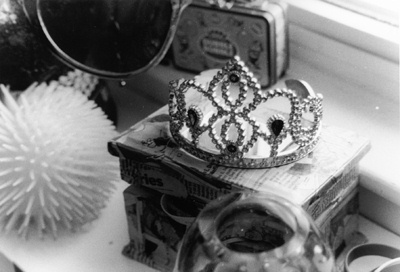All Nonfiction
- Bullying
- Books
- Academic
- Author Interviews
- Celebrity interviews
- College Articles
- College Essays
- Educator of the Year
- Heroes
- Interviews
- Memoir
- Personal Experience
- Sports
- Travel & Culture
All Opinions
- Bullying
- Current Events / Politics
- Discrimination
- Drugs / Alcohol / Smoking
- Entertainment / Celebrities
- Environment
- Love / Relationships
- Movies / Music / TV
- Pop Culture / Trends
- School / College
- Social Issues / Civics
- Spirituality / Religion
- Sports / Hobbies
All Hot Topics
- Bullying
- Community Service
- Environment
- Health
- Letters to the Editor
- Pride & Prejudice
- What Matters
- Back
Summer Guide
- Program Links
- Program Reviews
- Back
College Guide
- College Links
- College Reviews
- College Essays
- College Articles
- Back
Beauty Is Not A Contest
Beauty pageants have been a part of American culture for many years. They began in America in 1921 with the Miss America Pageant. However, beauty pageants for children did not emerge until the 1960s. With many examples in modern movies and television, child beauty pageants have become a topic of much criticism. Many people have a negative view of children’s beauty pageants because the focus often seems to be on the parents’ desires and not the child’s best interests. Although beauty pageants are a great form of entertainment, they should be banned because kids do not learn the importance of true beauty and it keeps children from living their own childhood experience.
One issue that is a result of beauty pageants is teaching girls that true beauty is what clothes or makeup people wear. Instead, we should be teaching them that true beauty is the type of person they are on the inside. For example, if people search the word beauty, images of many models will pop up. However, we should love and appreciate people depending on their personality and character and not on their looks. Also, the “Try” video by Colbie Caillat shows that people will put on makeup to be accepted, and like beauty pageants, society thinks that beauty is only skindeep and is based upon material items. In searching for true beauty by watching a music video about makeup, it shows us that beauty pageants really do teach girls that material items are more precious than true beauty.
Another issue caused by beauty pageants is the deprivation of childhood experiences and freedom. All children should play baseball or dance at least once in their life, and a majority start at young ages. If girls participate in beauty pageants, they will have less time to focus on childhood experiences like hanging out with friends or playing with siblings because they compete almost every week. In addition, the girls are probably too young to disobey their parents, so they will feel pressured to join the pageants. The children should have the ability to choose to join the pageants, but since many parents are living through their kids, they do not give their children a choice. Focusing less on childhood experiences and lack of freedom are two other common problems that result from beauty pageants.
However, several people would claim that beauty pageants prepare you for the judgement in the future. If girls are used to being criticized and judged, they will not be as sensitive to the public eye. On the other hand, making girls younger than thirteen feel unworthy of themselves is a bad decision and can result in other physical and emotional problems later in life. This is a real downside of these pageants because girls under thirteen should not be made to feel unworthy of themselves.
Although child beauty pageants have become more popular in recent years, their popularity has shown us that we are showing them the wrong view of beauty and keeping them from enjoying their freetime as a kid. Television shows have given us an inside look at this world and we can see that much of the importance of these pageants is because the parents push their kids to compete in these contest. These pageants add to society’s focus on physical beauty and not what is inside a person. Also, many of these children do not lead a normal life of a child because much of their time is dedicated to competition. These contest also expose young children to judgment and criticism at a young developing age. In addition, the pageants are pressuring kids to obey their parents so they are forced to join the contests. Because of all of the problems many of these children experience, beauty pageants for kids should be banned and young girls can compete when they are of a mature age and able to make their own decision to participate in a beauty pageant.

Similar Articles
JOIN THE DISCUSSION
This article has 0 comments.

This is a persuasive essay.